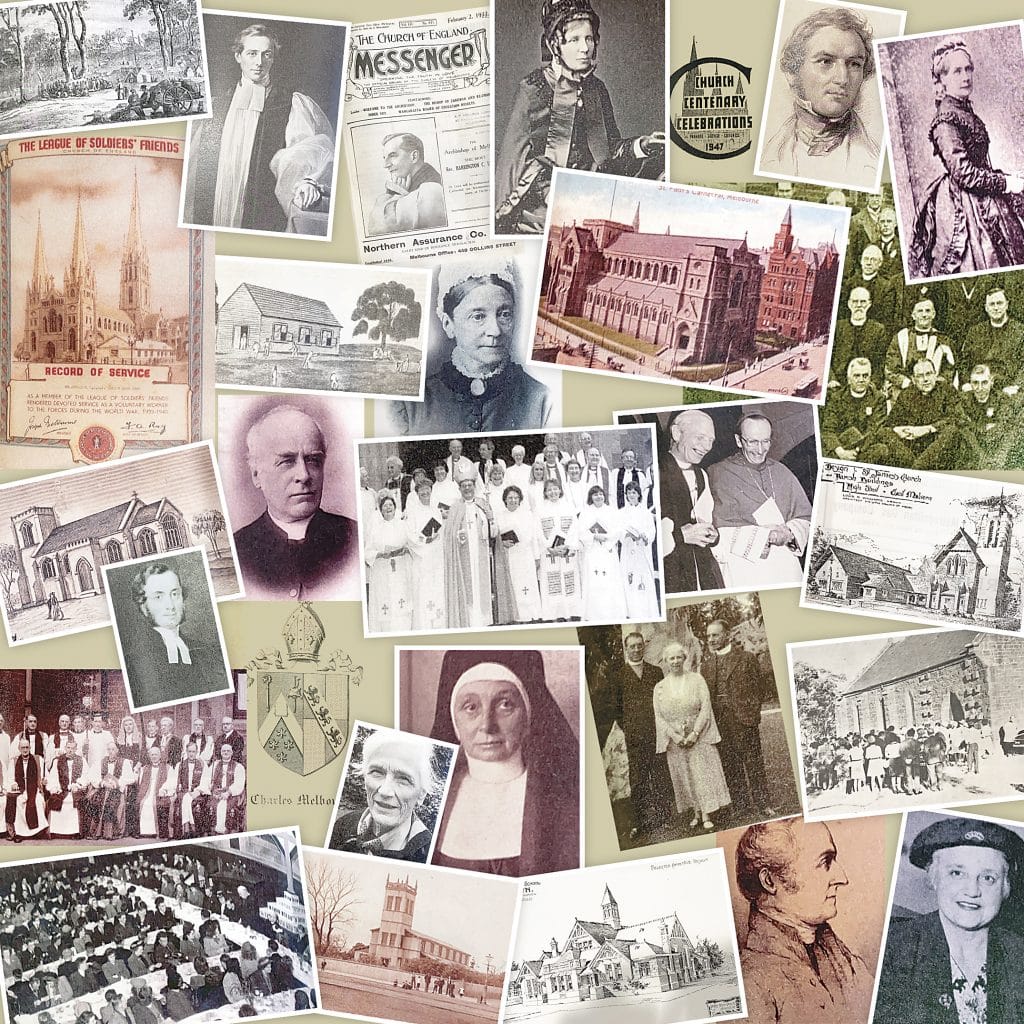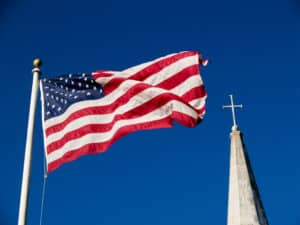
Jenan Taylor
7 June 2022
It was a desire to consecrate a bishop that saw Melbourne named a cathedral city on 25 June 1847, by Letters Patent from Queen Victoria. Four days later, evangelical Charles Perry was consecrated.
Six months later, he arrived in Melbourne itself. The town’s settlement by Europeans dated from just 12 years earlier. For tens of thousands of years, the area had been home to the people of the Bunurong Boon Wurrung and Wurundjeri Woi Wurrung peoples of the Eastern Kulin Nation
As the Diocese of Melbourne prepares to mark 175 years, we asked Archbishop Philip Freier about its milestones, the future, and how we’re handling some of our biggest challenges and issues.
What is significant about this anniversary year for the diocese?
This is a pretty unique year. Even though we’re not out of COVID and the case numbers and the deaths from COVID indicate that, we seem corporately to have a shared feeling that we’ve turned some sort of a corner.
In this 175th year, like in many other times in the life of the diocese, we feel that we turned a corner and that we have at least a future that’s open for us to shape now. That is something we didn’t feel the last couple of years.
Read more: Preaching Christ crucified has worked for 175 years, it will work for another
One of the great things for us this year has been the decision at the General Synod to do something really positive about approaching domestic violence.
The synod made an unprecedented commitment … to commit very significant resources to addressing domestic violence, because we know to our shame that this is a real issue in the church. We did a comprehensive study, and in some areas, we are more prone to the incidence of domestic violence than the general population. So, we want to take that seriously. That’s an impressive and unprecedented agreement to do something that will be far reaching in its influence.
Where has the diocese led the way in terms of accommodating the decisions of the Church and the views of the broader Victorian community?
I think that we have been quite responsive in appropriating technology for the pastoral benefit of our members. A lot of churches really worked hard to do live streaming, online things using various media, so people could feel connected. Because we in Melbourne had the long lockdowns, many people felt very anxious and very isolated. Our churches were, in their communities, very vital sources of love and connection for people and that was life giving. You can’t put a value on that.
Because we know that it is challenging coming out of COVID this year, I’m launching a project to work with about 30 of our parishes and ministries that are probably most vulnerable after the COVID experience. We really want to help them work through the Reimagining the Future instrument that we have been generously given by the Diocese of Brisbane. We want to more specifically help some places that are going to find that they’re not the same place now as they were before COVID. We want to strengthen them as well as we can by helping engage in that process.
Same-sex marriage has been a contentious issue for the Anglican Church in Australia for the last few years. Given the recent General Synod, how do you see the Melbourne diocese beginning to try to forge a way forward on this issue?
I think after the General Synod many people’s emotions are a bit raw, so we do need a time of some healing, and especially in the church, nationally. We initially need some work with the house of Bishops. We need to take some leadership to increase confidence in dialogue amongst the bishops.
Read more: A Chinese-Australian vision for the Melbourne Diocese in 2197
I’ll certainly be talking to the Victorian bishops about where we might contribute to that. But I think, for many people in different ways, it was a reasonably heavy week. How the same sex marriage decisions are received, I think will take some time to work out. But I’ve been seeing really interesting ideas and proposals, as people reflect on it.
What do you give thanks for in terms of what the diocese has achieved in the past 175 years?
We give thanks for the faithfulness of the people upon whose shoulders we stand. We don’t do much that’s just down to us. We have people who have been completely heroic in their commitment to building the church. They’ve found institutions, like the Brotherhood of St Laurence, Anglicare and Benetas, that are heroic and that we easily take for granted. They’ve been done by people with vision.
Most of our parishes weren’t the gifts of wealthy people. They were often from poor people who were migrants themselves, who gave the little that they had to build up a ministry in the local community. I treat those as a great trust we’ve been given and as encouragement for us and our generation to be also equal to the heroism and the vision and the sacrifice we need for our mission to prosper in our present day.
For more faith news, follow The Melbourne Anglican on Facebook, Twitter, or subscribe to our weekly emails.







